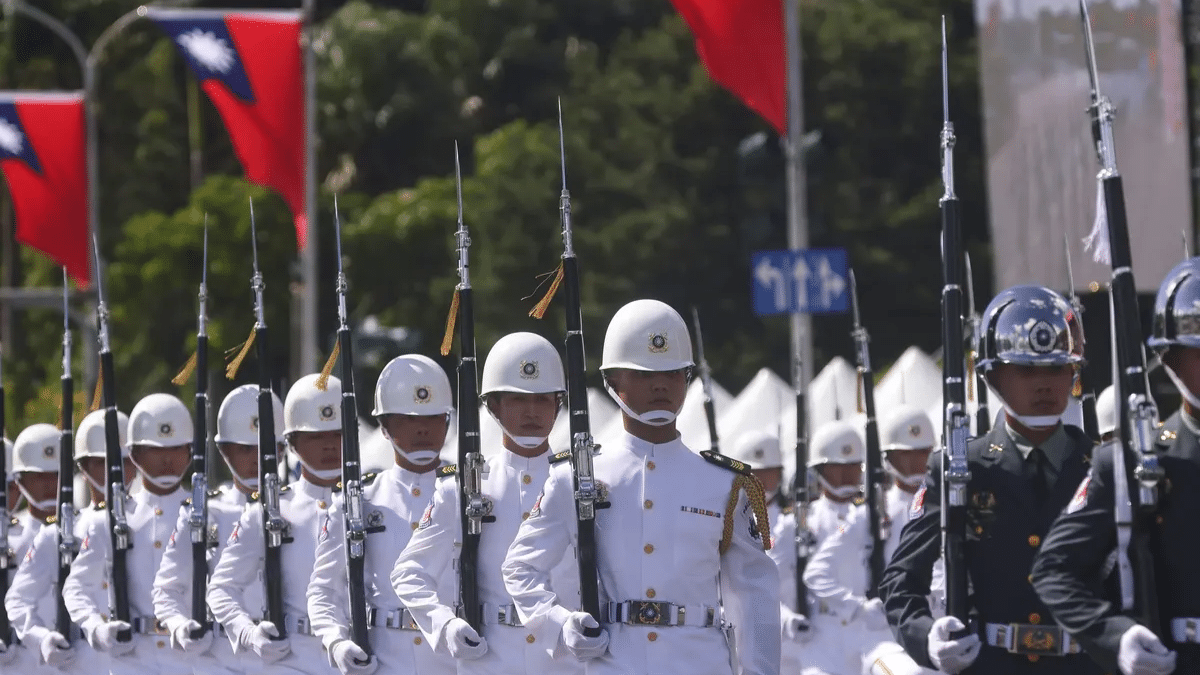During a recent court proceeding in Taiwan, two soldiers who are currently on active service were accused of taking payments from Chinese agents to create a film that started their allegiance to China and their desire to defect in the case of a conflict. The footage allegedly found its way into Chinese propaganda, raising further questions about Chinese (PRC) and Taiwanese (ROC) spying.
A major threat to Taiwan’s security emerged a few weeks later when the conviction of a former army colonel for accepting bribes to act as a spy and postpone his retirement was affirmed.
These instances are part of a larger pattern in which numerous active and former troops in Taiwan are being accused of spying for China in several intelligence cases. With the Chinese Communist Party (CCP) prioritising “reunification” under Xi Jinping and considering Taiwan a province of China, tensions between the two organisations have escalated. China uses the historical ties between the two territories to support its claims, although the CCP never ruled Taiwan.
Under Xi’s leadership, the People’s Republic of China has intensified its coercive measures against Taiwan by using a range of strategies, such as cyber warfare, economic coercion, grey-zone military operations, and cognitive warfare. In 2017, Taiwan’s government calculated that more than 5,000 spies were operating inside its borders for China, and the Beijing intelligence service was aggressively seeking out Taiwanese nationals for recruitment.
Chiu Kuo-cheng, Taiwan’s defence minister, emphasised the significant influence of China’s recruitment efforts by bringing up examples of people—including politicians and community leaders—being offered incentives before elections. The president’s bodyguard detail is one of the sensitive places where espionage activities have even penetrated, raising questions about the allegiance of those who ought to be most committed to Taiwan.
Research fellow Dr Shen Ming Shih of the Institute for National Defence and Security Research listed several variables that influence recruiting, such as individuals being drawn in by financial incentives or seeking retribution for past treatment, as well as ideological ideas and shaky views of China as an enemy. The severity of the problem has also increased as a result of previous lenient penalties.
The trend is moving towards active-duty officers and soldiers, although in the past, retired personnel made about two-thirds of espionage cases involving military personnel. The objective of this shift in emphasis is to evaluate the military’s capacity for battle, morale, and political backing.
Growing concerns are being expressed regarding the influence on Taiwan’s armed troops’ morale among these espionage fears. The detrimental impacts of China’s constant cognitive warfare and the ROC military’s antiquated leadership were highlighted by Chen Xi, a 32-year-old Taiwanese who joined foreign fighters in Ukraine. The military’s mission is made more difficult by concerns regarding Taiwanese identity.
As the Democratic Progressive party campaigns against Beijing’s aggression, observers see a growing promotion of espionage cases in the run-up to Taiwan’s presidential election. The government of Taiwan is acting proactively, working with the prosecutor’s office, strengthening legislation about national security, stepping up counterintelligence operations, and limiting the travel of retired officials to China.

